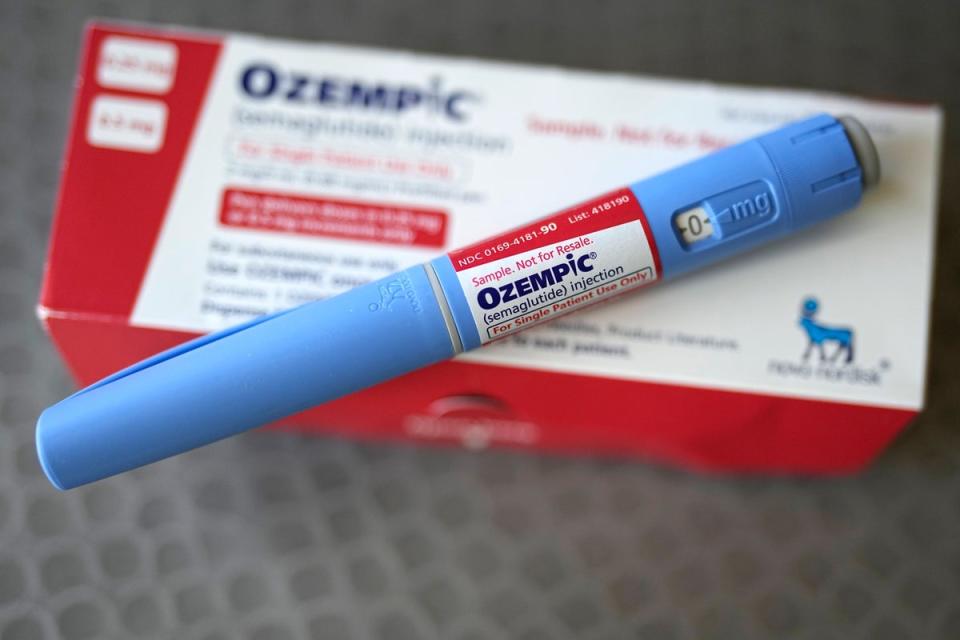Ozempic maker slams Biden after the president accused the drug company of ‘ripping off’ US consumers
The company behind the popular weight loss and diabetes drug Ozempic slammed Joe Biden after he accused the pharmaceutical giant of “ripping off” US consumers with sky-high prescription prices.
President Biden and Senator Bernie Sanders, the chair of the Senate Health, Education, Labor and Pensions Committee, co-authored a scathing op-ed in USA Today on Tuesday expressing concerns over the “outrageous prices that the pharmaceutical industry charges the American people for prescription drugs.”
The Democratic leaders accused Novo Nordisk, the Danish pharmaceutical company that makes diabetes and weight-loss drugs Ozempic and Wegovy, of “charging the American people unconscionably high prices for these prescription drugs.”
“Why should people in Burlington, Vermont, pay so much more than people in Copenhagen or Berlin for the same drug?” the pair wrote.
While a prescription for Ozempic in the US has an average list price of $936, it is just $83 in France, according to a 2023 KFF report.
The Democrats pointed to their legislative efforts, like the Inflation Reduction Act, aimed at reducing drug costs, before pointing fingers at big pharma: “It’s not just Congress that needs to act. Prescription drug companies also must stop ripping off the American people.”
Novo Nordisk responded to the claims in a harsh rebuke, telling Politico that it was “disappointed that a very difficult and complex problem is being oversimplified and mischaracterized for political purposes.”

“Each country has its own health care system and making isolated and limited comparisons ignores this fundamental concern,” a company spokesperson told the outlet.
Ozempic’s price “has decreased approximately 40 percent since launch and over 80 percent of Americans with insurance only pay $25 or less per month” for the drug.
The spokesperson continued: “Unfortunately, even when we lower our prices, patients in the United States often don’t receive the savings — this is a problem.”
The demand for weight-loss drugs has skyrocketed. Around six percent of US adults, or an estimated 15.5 million people, have used injectable weight-loss drugs, according to a May Gallup survey.
But perhaps none can compete with the popularity of Ozempic, lauded as a weight-loss miracle drug by celebrities. The medication has experienced a recent surge that is hard to exaggerate; the company’s market capitalization of $570bn is greater than the entire Danish GDP worth $400bn, Bloomberg reported in April.
The Democrats also took aim at Eli Lilly, accusing the pharmaceutical company of “charging unconscionably high prices for Mounjaro, a drug with similar health effects as Ozempic.” An average list price for the drug is $1,023 in the US compared to $444 in the Netherlands, according to the KFF study.
A spokesperson for Eli Lilly told The Independent in a statement: “We offer Zepbound and Mounjaro for as low as $25 a month to those eligible for our savings card program. Comparing list prices in the United States to other countries ignores patient affordability programs and hundreds of billions of dollars in discounts and fees paid to [pharmacy benefit managers] by pharmaceutical companies that should lower the costs of medicines for Americans, but unfortunately this system can drive prices higher.”
“Obesity is a chronic, progressive disease and Joint Economic Committee economists estimate that over the next ten years, combined Medicare and Medicaid spending on obesity and obesity-related diseases will total $4.1 trillion. Treating these conditions today will save money,” the statement continued.


